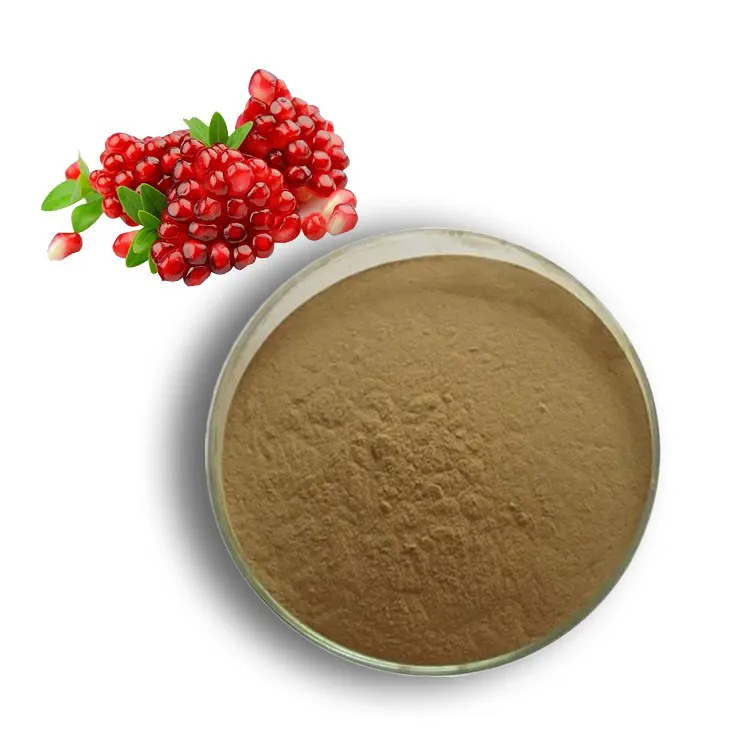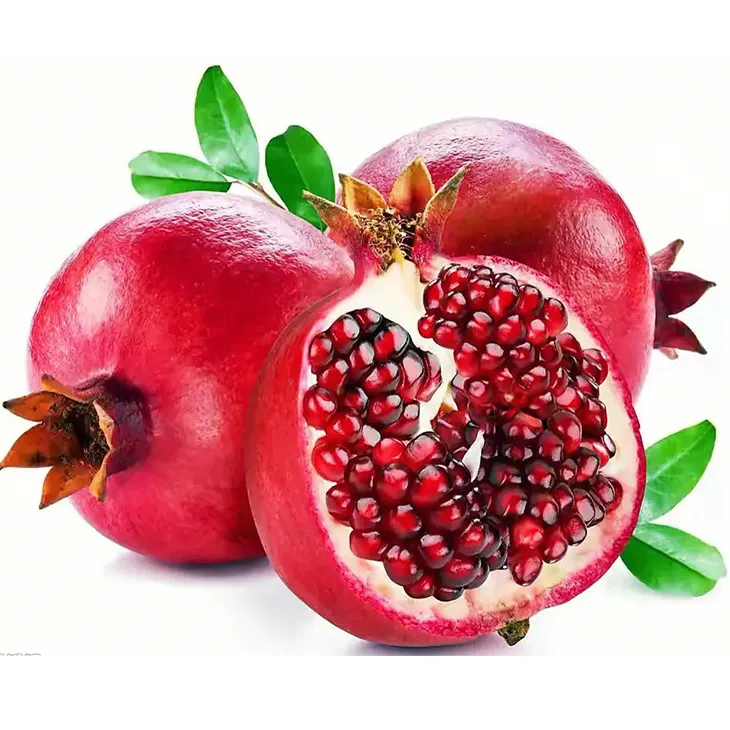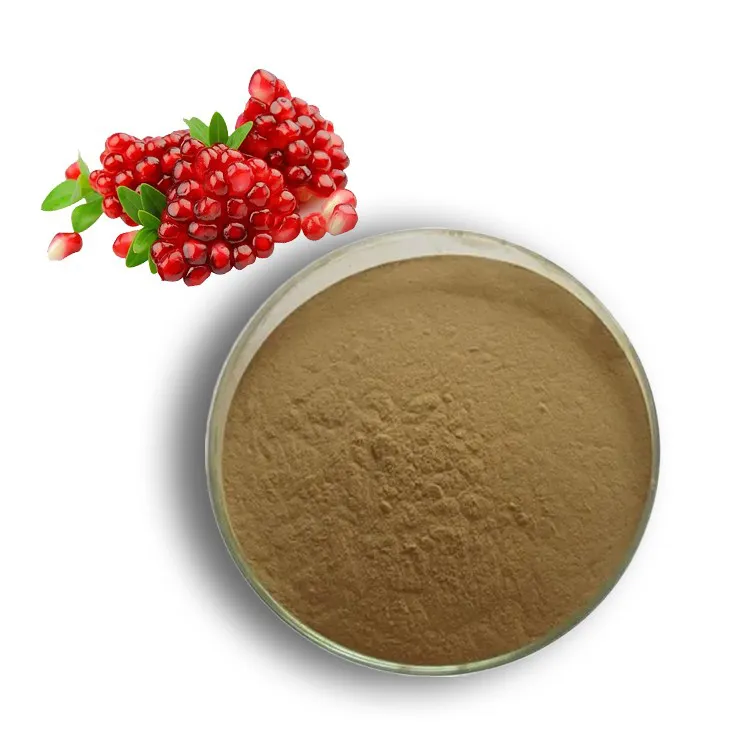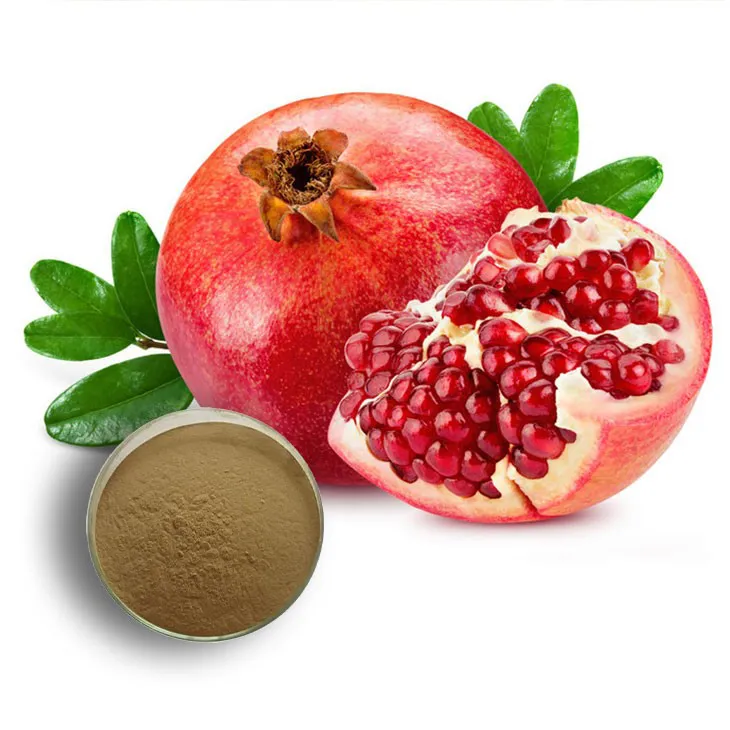- 0086-571-85302990
- sales@greenskybio.com
How do pomegranate extract manufacturers wholesale and customize products?
2024-12-20

1. Introduction
The Pomegranate Extract industry has been experiencing significant growth in recent years. This is mainly due to the increasing awareness of the rich nutrients and diverse health benefits associated with Pomegranate Extract. Pomegranate Extract is rich in antioxidants such as punicalagins and ellagic acid, which are known for their anti - inflammatory, anti - aging, and cardiovascular - protecting properties. As a result, it has found applications in various sectors, including dietary supplements, cosmetics, and pharmaceuticals. Manufacturers in this field need to understand how to effectively wholesale and customize their products to meet the market demands.

2. Wholesale of Pomegranate Extract
2.1 Price Competitiveness
Price is a crucial factor in the wholesale market. Pomegranate extract manufacturers need to ensure that their pricing is competitive. To achieve this, they must optimize their production processes to reduce costs without sacrificing quality. This may involve sourcing raw materials in bulk, investing in efficient extraction technologies, and streamlining their manufacturing operations. For example, by establishing long - term relationships with pomegranate farmers, manufacturers can often negotiate better prices for the raw fruit. Additionally, technological advancements in extraction methods can lead to higher yields, which can also contribute to cost - savings.
2.2 Quality Control
Maintaining high - quality standards is essential for wholesale success. Quality control should start from the selection of raw pomegranates. Only ripe and healthy fruits should be used for extraction. During the extraction process, strict monitoring of parameters such as temperature, pressure, and solvent usage is necessary to ensure the purity and potency of the extract. Manufacturers should also conduct regular quality tests, including assays for the active ingredients, microbiological tests, and heavy metal analysis. This not only helps in meeting regulatory requirements but also in building a good reputation in the market.
2.3 Minimum Order Quantities
Determining the appropriate minimum order quantity (MOQ) is a strategic decision for manufacturers. A high MOQ may deter small - scale buyers, while a too - low MOQ may not be cost - effective for the manufacturer. Manufacturers need to consider factors such as production capacity, cost per unit at different production volumes, and market demand when setting the MOQ. For example, if the market mainly consists of small - to - medium - sized businesses, a relatively low MOQ with a slightly higher unit price may be more appealing. However, for large - scale distributors, a higher MOQ with a more favorable price per unit may be the preferred option.
2.4 Logistics and Distribution
A well - organized logistics and distribution system is vital for timely delivery of wholesale orders. Manufacturers should have reliable shipping partners to ensure that the pomegranate extract reaches its destination in good condition. This may involve proper packaging to protect the product from environmental factors such as moisture and heat. They also need to manage inventory effectively to avoid stock - outs or overstocking. Additionally, considering international shipping regulations and customs requirements is necessary for manufacturers who engage in global wholesale business.

3. Customization of Pomegranate Extract
3.1 Understanding Client Needs
Customization begins with a deep understanding of the specific requirements of clients. For example, in the dietary supplement industry, clients may require different formulations of pomegranate extract. Some may prefer a concentrated form for high - potency supplements, while others may need a more diluted version for combination products. In the cosmetics sector, clients may be interested in pomegranate extract with specific characteristics, such as a particular odor profile or solubility for use in creams, lotions, or serums. Manufacturers need to communicate effectively with clients to gather all the necessary information about their intended use, target market, and any regulatory constraints.
3.2 Advanced Production Technology
To meet diverse customization requirements, manufacturers must possess advanced production technology. This includes the ability to adjust the extraction process to obtain different levels of active ingredients. For instance, if a client requires a pomegranate extract with a higher concentration of punicalagins, the manufacturer should be able to fine - tune the extraction parameters such as extraction time, solvent type, and extraction temperature. Additionally, technology for encapsulation or formulation development is important for creating customized products. For example, if a client wants a slow - release form of pomegranate extract for a dietary supplement, the manufacturer needs to have the technology to produce such a formulation.
3.3 R & D Capabilities
Research and development (R & D) capabilities play a significant role in customization. Manufacturers should invest in R & D to explore new applications of pomegranate extract and develop innovative products. For example, R & D may focus on finding ways to enhance the bioavailability of pomegranate extract in the human body, which can open up new opportunities in the dietary supplement market. R & D can also lead to the discovery of new combinations of pomegranate extract with other ingredients for enhanced efficacy. Moreover, staying updated with the latest scientific research on pomegranate and its health benefits allows manufacturers to offer more value - added customization options to their clients.

4. Conclusion
In conclusion, pomegranate extract manufacturers face both opportunities and challenges in the wholesale and customization aspects of their business. By focusing on price competitiveness, quality control, and efficient logistics in wholesale, and by understanding client needs and investing in advanced technology and R & D for customization, manufacturers can thrive in this growing market. The market for pomegranate extract is likely to continue to expand, driven by the increasing demand for natural and healthy products. Therefore, manufacturers who can effectively manage these aspects will be well - positioned to succeed in the long - term.

FAQ:
What are the key factors for pomegranate extract manufacturers to ensure price competitiveness in wholesale?
To ensure price competitiveness in wholesale, pomegranate extract manufacturers can consider several factors. Firstly, optimizing the production process to reduce costs without sacrificing quality. This may involve improving production efficiency, such as using more advanced machinery or streamlined production lines. Secondly, sourcing raw materials in large quantities at a lower cost. They can establish long - term relationships with pomegranate suppliers to get better prices. Thirdly, controlling overhead costs, including management, marketing, and distribution costs. By effectively managing these aspects, manufacturers can offer competitive wholesale prices.
How do pomegranate extract manufacturers maintain quality control during wholesale?
Manufacturers maintain quality control during wholesale through multiple methods. They start with strict raw material inspection, ensuring that the pomegranates used are of high quality. In the production process, they follow strict Good Manufacturing Practice (GMP) guidelines. This includes regular equipment calibration, proper handling of ingredients, and strict hygiene standards. Quality checks are carried out at different stages of production, such as during extraction, purification, and packaging. Samples are often tested in - house or sent to third - party laboratories for comprehensive analysis to ensure that the pomegranate extract meets the required quality standards before being wholesaled.
What is the typical minimum order quantity for pomegranate extract wholesale?
The typical minimum order quantity for pomegranate extract wholesale can vary significantly depending on the manufacturer. Some smaller manufacturers may have a relatively low minimum order quantity, perhaps in the range of a few kilograms or tens of kilograms, especially if they are targeting smaller businesses or startups. However, larger, more established manufacturers may set a higher minimum order quantity, which could be several hundred kilograms or even tons. This is often related to their production scale, cost - structure, and market positioning. Additionally, factors such as the type of pomegranate extract (e.g., standard extract or a more specialized, high - purity extract) can also influence the minimum order quantity.
How can pomegranate extract manufacturers meet the specific needs of clients in customization?
To meet the specific needs of clients in customization, pomegranate extract manufacturers need to take several steps. Firstly, they should have effective communication channels with clients to fully understand their requirements. This could include the desired form of the extract (e.g., powder, liquid), specific purity levels, and any additional ingredients or formulations. Secondly, they rely on their R & D teams to develop appropriate production processes. For example, if a client wants a pomegranate extract for a particular dietary supplement with specific bioactive components, the R & D team may need to develop a customized extraction method. Thirdly, manufacturers should be flexible in their production schedules to accommodate customization requests. This may involve adjusting production runs and inventory management to ensure timely delivery of the customized pomegranate extract products.
What advanced production technologies do pomegranate extract manufacturers need for customization?
For customization, pomegranate extract manufacturers may need several advanced production technologies. One important technology is supercritical fluid extraction, which can be used to obtain high - quality extracts with specific properties. This method allows for precise control of extraction conditions, resulting in extracts with desired purity and composition. Another technology is membrane separation, which can be useful for purifying the extract and separating different components. Additionally, chromatography techniques, such as high - performance liquid chromatography (HPLC), are often employed for quality analysis and to ensure that the customized extract meets the specific requirements. These technologies, along with skilled technicians and proper equipment maintenance, are essential for manufacturers to meet diverse customization requirements.
Related literature
- The Health Benefits and Production of Pomegranate Extracts"
- "Pomegranate Extract in the Dietary Supplement and Cosmetic Industries: Production and Customization"
- "Wholesale of Botanical Extracts: The Case of Pomegranate"
- ▶ Hesperidin
- ▶ citrus bioflavonoids
- ▶ plant extract
- ▶ lycopene
- ▶ Diosmin
- ▶ Grape seed extract
- ▶ Sea buckthorn Juice Powder
- ▶ Beetroot powder
- ▶ Hops Extract
- ▶ Artichoke Extract
- ▶ Reishi mushroom extract
- ▶ Astaxanthin
- ▶ Green Tea Extract
- ▶ Curcumin Extract
- ▶ Horse Chestnut Extract
- ▶ Other Problems
- ▶ Boswellia Serrata Extract
- ▶ Resveratrol Extract
- ▶ Marigold Extract
- ▶ Grape Leaf Extract
- ▶ blog3
- ▶ blog4
- ▶ blog5
-
Pure 85% Tomentil Extract.
2024-12-20
-
Angelica sinensis extract
2024-12-20
-
Acerola Extract
2024-12-20
-
Apricot Powder
2024-12-20
-
Fig Extract
2024-12-20
-
Agaricus Blazei Extract
2024-12-20
-
Oyster Mushroom Extract Powder
2024-12-20
-
Thunder God Vine Extract
2024-12-20
-
Yam Extract
2024-12-20
-
Yohimbine Bark Extract
2024-12-20
-
Hawthorn powder
2024-12-20





















